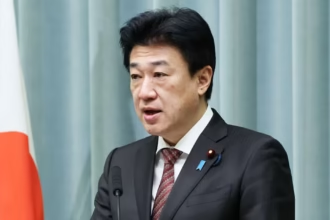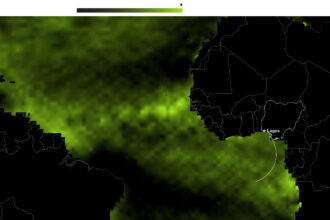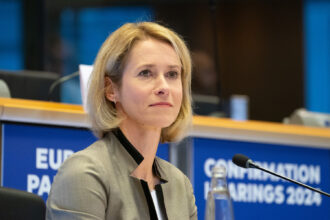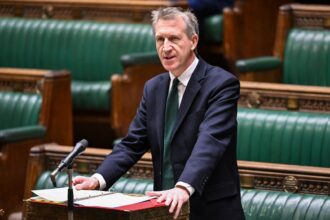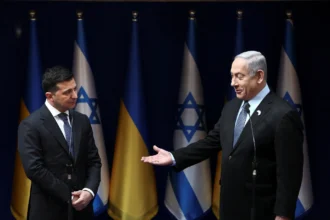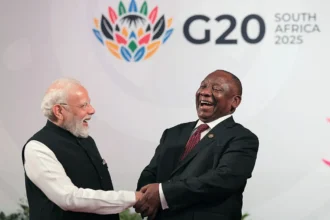In a dramatic display of courage and resilience, Nobel Peace Prize winner María Fernández has vowed to continue her advocacy for democracy and human rights in Venezuela, despite relentless vilification by the Maduro regime. The prominent activist and scholar has spent decades drawing international attention to government abuses, and recent attacks against her by state-controlled media underscore the risks faced by dissenters in the increasingly authoritarian country.
For Fernández, retreat is not an option. “They can try to silence me, but the fight for Venezuela’s future cannot stop,” she declared during a virtual address to supporters in Latin America and Europe.
Targeted by the Maduro Regime
The Venezuelan government has increasingly sought to discredit Fernández, portraying her as a foreign agent and an instigator of unrest. State media broadcasts have accused her of collaborating with international organizations to undermine the government, and online campaigns have flooded social platforms with personal attacks.
Despite these efforts, Fernández remains undeterred. “Character assassination is the tool of the desperate,” she said. “Truth cannot be suppressed with lies.”
Observers note that the vilification is part of a broader pattern in which the Maduro regime attempts to delegitimize any credible voices calling for transparency, elections, or humanitarian reform. Fernández, with her Nobel recognition, represents both a symbolic and practical threat: she commands international attention and has the credibility to rally foreign governments and organizations to support democratic reforms.
A Life Dedicated to Advocacy
Fernández’s journey into activism began in the early 2000s, when she witnessed growing political polarization and economic hardship in her home country. She has since focused on promoting human rights, documenting abuses, and advocating for free elections.
Her Nobel Peace Prize, awarded in 2020, recognized her unwavering commitment to nonviolent advocacy in the face of government intimidation. International observers have consistently cited her research, reports, and fieldwork as instrumental in keeping Venezuela’s human rights situation on the global agenda.
Challenges on the Ground
Venezuela’s political environment has grown increasingly hostile. Activists, journalists, and opposition politicians face arbitrary detention, travel restrictions, and threats of violence. Fernández herself has been forced into a pattern of careful public appearances and increased security precautions, relying heavily on encrypted communications to coordinate with colleagues and international allies.
Despite the danger, she has maintained her presence inside Venezuela, arguing that meaningful advocacy must occur within the country, not from exile. “If I leave, who will speak for those who cannot?” she asked in a recent interview. “Our people deserve voices here, not just abroad.”
International Support and Pressure
The vilification of Fernández has drawn concern from human rights organizations and foreign governments. The United Nations, the Organization of American States, and multiple European parliaments have issued statements condemning harassment against her and other activists.
Fernández leverages this attention strategically. By highlighting abuses, she strengthens diplomatic pressure on the Maduro regime while keeping humanitarian and democratic issues in the global spotlight. She has also called for targeted sanctions against officials involved in rights violations, emphasizing accountability over blanket measures that could harm ordinary Venezuelans.
Looking Forward: Persistence Amid Adversity
For Fernández, the struggle is far from symbolic. She is working to document ongoing economic hardship, support grassroots civic initiatives, and push for electoral reforms ahead of future votes. Her approach combines fieldwork, international advocacy, and coalition-building across civil society, demonstrating a multi-layered strategy to confront authoritarianism.
Analysts suggest that her continued visibility and credibility may provide a counterweight to state propaganda, reinforcing the legitimacy of opposition movements while inspiring ordinary citizens. Her Nobel laureate status, they argue, not only protects her from immediate repression but also amplifies her voice globally.
A Message of Resilience
María Fernández’s story is one of defiance in the face of intimidation, illustrating both the power and peril of standing up to authoritarian regimes. By refusing to yield, she embodies the principle that democracy and human rights require steadfast commitment — even when the stakes are high.
As she continues her work inside Venezuela, Fernández’s message to her compatriots and supporters abroad is clear: “Fear is a tool of oppression. Our courage is our weapon. We will keep fighting, here and everywhere, until Venezuela is free.”



